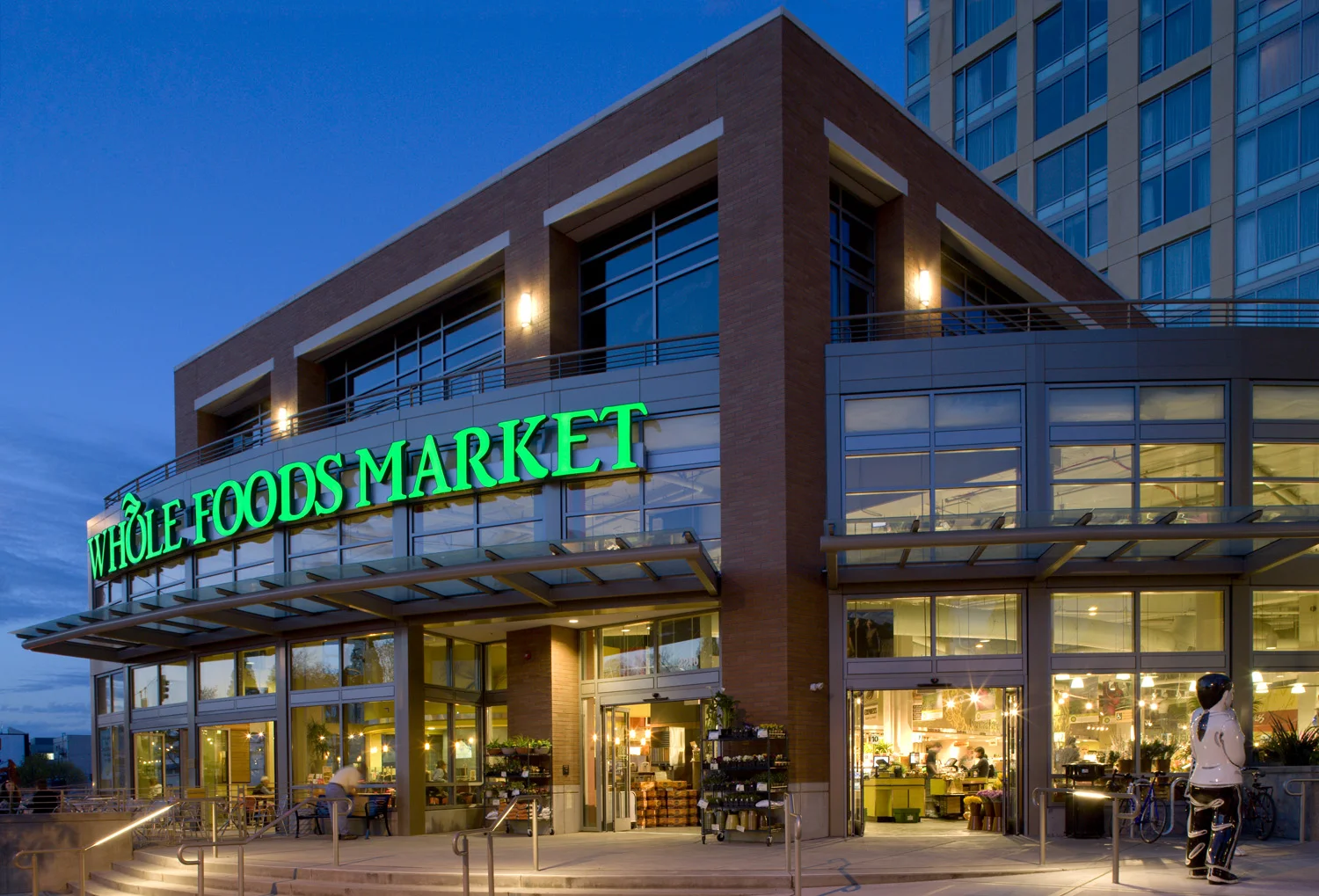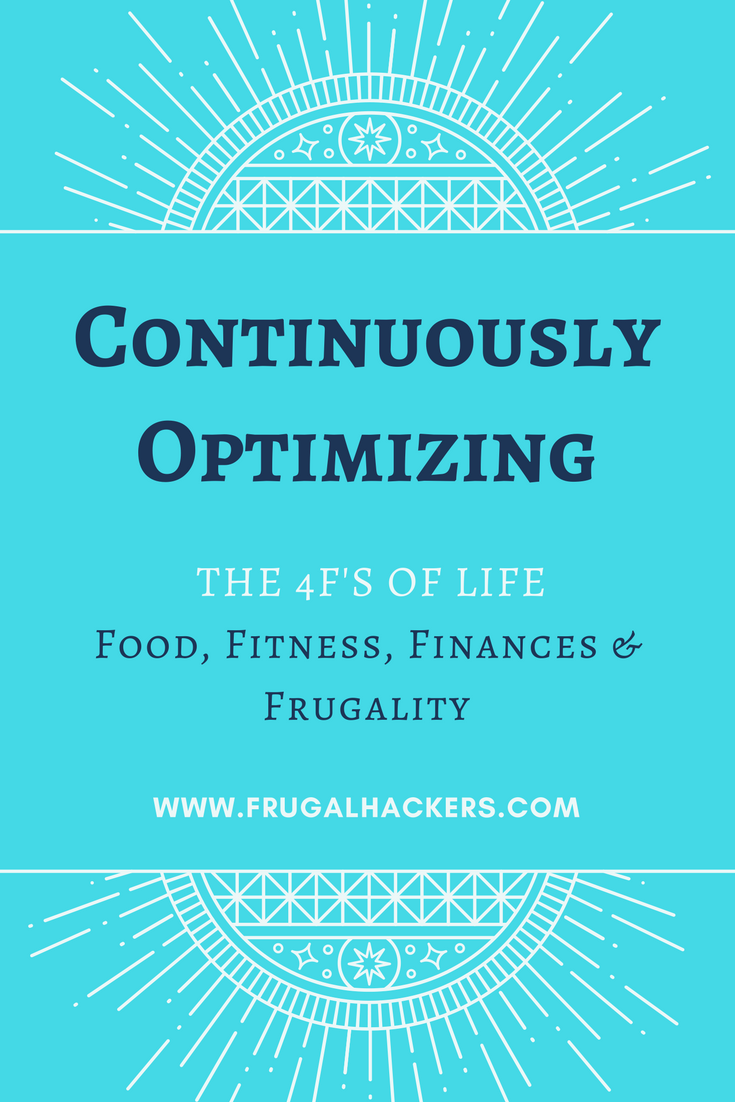Author's note: This post is purely conjecture, it is not based on any real facts, data, science, or evidence. Read with a grain of salt! It does however underscore the fact that high net worth households (aka affluent people) don't shop like everyone else, especially when it comes to groceries. We at Frugal Hackers HQ certainly don't.
Here's one possible explanation for why Whole Foods sales have been consistently dropping over the past few years. It's entirely possible that because their products are so incredibly expensive, Whole Foods had been carefully positioning their stores near the affluent people of America for several decades. One way they may have scouted for these locations is by plotting households in America by net worth and placing their stores within a 5-mile driving distance of those hot pockets. I've heard there's data feeds you can get from county records plotting zip codes and blocks by net worth.
At first, this strategy worked well. High net worth people wanted to eat healthier, organic food without all the chemicals, pesticides, preservatives, artificial colors, etc, so they didn't mind paying the heavy premium to acquire such healthier foods. But little did Whole Foods know that high net worth people don't shop like everyone else. High net worth households actually comprise of incredible frugal people, and they will jump ship the second the same options are available elsewhere at a lower price point. And my guess is this is what happened with many Whole Foods shoppers.
As other stores like Costco and Walmart started to increase their organic offerings over time (thanks to Whole Foods for proving that the market demand exists for it), the truly affluent people (i.e. the high net-worth households) stopped going to Whole Foods as much since they were probably already visiting Costco and Walmart for their non-grocery purchases. To be truly frugal, you need to be shopping at discount/bulk stores like Costco, Walmart, and Kroger to help keep your grocery and household expenses minimal. I know several affluent people who shop exclusively at Costco for a large portion of their groceries + household items. They do it because that's how they got rich in the first place, by carefully choosing what they buy and where they buy it from.
Here at Frugal Hackers HQ, almost 75% of our grocery and household (toiletries, shampoo, laundry detergent, toilet paper, etc.) expenses come from Costco + Foods Co. combined. Foods Co. is a discount grocery store owned by Kroger. We get most of our perishables from Foods Co. and most of our non-perishables from Costco. Our total Whole Foods spend this year? A whopping $0.
Perhaps the main mistake Whole Foods made over the last few decades is that they "strategically" placed their stores near affluent (i.e. high net worth) people. Instead, they should've placed their stores near high-income families. Turns out the two aren't the same. According to the in-depth research from the book The Millionaire Next Door, the majority of high-income families (>$100k in annual family income) don't end up becoming millionaires. Therefore high-income isn't the same as high net worth. Net worth only increases to a million if the family remains diligent with their money and stays frugal, maintaining a higher than usual savings rate compared to their peers in the same age/income bucket.
Perhaps the high-income families may not have been so quick to switch to Costco and Walmart when these new cheaper alternatives for organic foods presented themselves. Most high-income families are big spenders and poor savers, so perhaps they weren't previously visiting Costco and Walmart at all, or at least visiting much less frequently than the truly affluent, high net-worth families. The effort then for high-income families to switch to a cheaper Costco/Walmart would've been way higher, making them less likely to switch, therefore getting them to stick with Whole Foods, continuing to pay the heavy premiums, padding Whole Foods margins, keeping the sales numbers and associated stock price at least intact if not growing.
This is an important distinction to be made, especially in the wake of the recent news of Amazon purchasing Whole Foods for a whopping $13.7 billion dollars. Amazon is betting huge that each Whole Foods store is placed so strategically that they can use them as mini-warehouses and/or shipping depots to transport groceries and non-groceries alike at record speed to affluent people's homes. However, my intuition is that the truly affluent people (i.e. the millionaires) don't shop all that much on Amazon, and don't value stuff arriving right this second. Frugal people don't like paying unnecessarily for convenience, especially when it's not truly needed.
What Amazon instead should want is to have depots and warehouses in close proximity to the high-income earners ($200-500k in annual income) who also tend to be big spenders, rather than next to the thrifty savers. Plotting zip codes by net worth can therefore be a precarious mistake every company can make. Way safer to plot by annual income instead. Will Amazon's bet of $32 million per Whole Foods store location pan out? Time will tell. High net-worth families comprising of frugal people are a bizarre and surprise-filled species, and so claiming to know how they spend and shop without due research could be a dangerous proposition in the long run.





